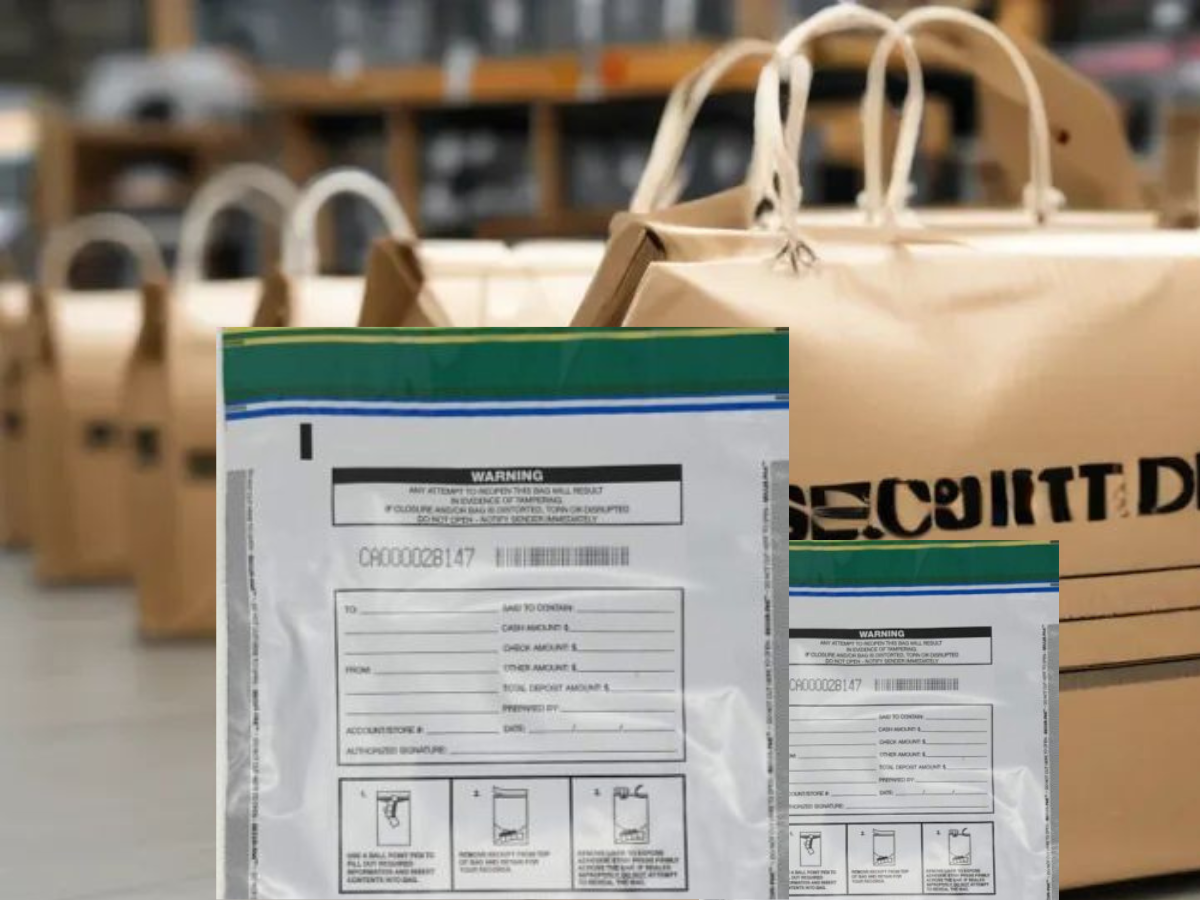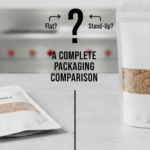
Essential Guide: 10 Tips on Buying Security Deposit Bags for Retailers

Retailers have a lot on their plates when it comes to managing their business operations, including the handling of financial transactions.
Ensuring the safety and security of cash and valuables is as important as your other business priorities.
Thankfully, there are simple yet effective tools like security deposit bags exist.
These specific bags are made to safeguard and preserve deposits whether they are being transported or stored. Selecting the ideal security deposit bags for their store might be difficult for merchants due to the abundance of options on the market.
In this essential guide, we will share 10 tips that retailers should keep in mind when purchasing security deposit bags.
Understand Your Security Needs
Before diving into the myriad of security deposit bags available, retailers must assess their specific security needs.
Consider the types of deposits you handle regularly, the level of risk associated with your location, and how often deposits are transported.
This initial step will help narrow down the selection to bags that meet your business’s unique requirements, whether it’s enhanced tamper-evident features or bags designed for high-value content.
Understanding your security needs ensures you invest in bags that offer the right protection level without overcompensating or overspending.
Consider the Bag’s Material
When selecting security deposit bags, the material of the bag is a crucial factor that cannot be overlooked.
The durability and resistance of the bag largely depend on its material composition. Plastic and polyethylene bags are popular for their lightweight and water-resistant properties, making them suitable for a variety of conditions.
For higher security needs, retailers might consider bags made from more robust materials such as nylon or laminated bags that offer additional strength and tear resistance. These materials are particularly advantageous for retailers who transport large sums of money or valuable items and need an extra layer of protection against tampering or environmental damage.
It’s important to think about how the chosen material will affect the environment. Materials that are recyclable or biodegradable might be a great option for companies trying to reduce their carbon impact without sacrificing security requirements.
Each material type has its unique benefits and limitations, so it’s essential to weigh these against your specific needs to find the most suitable security deposit bags for your retail operations.
Look for Tamper-Evident Features
One of the most critical aspects to consider when purchasing security deposit bags for retail operations is the presence of tamper-evident features.
These features are intended to improve the security of the contents by clearly indicating if a bag has been tampered with.
Look for bags that incorporate mechanisms such as void tape, heat indicators, cold-indicating technology, or water-based ink that blurs when tampered with.
Additionally, some bags may have security patterns or seals that distort if an unauthorized attempt to open the bag is made. It’s also beneficial to select bags that include multiple tamper-evident technologies, as this can deter potential tampering attempts and provide a higher level of security.
Remember, the goal is to make it immediately apparent if the integrity of the bag has been compromised in any way, thus protecting your deposits from theft or manipulation.
By prioritizing tamper-evident features in your selection process, you can ensure that your retail business is equipped with security deposit bags that offer formidable protection against tampering, giving you and your customers peace of mind.
Evaluate the Seal Types
When choosing security deposit bags, evaluating the types of seals is crucial.
The seal’s integrity directly impacts the bag’s security level, with options ranging from adhesive closures to mechanical seals. Adhesive seals are convenient and provide a one-time use, ensuring the bag hasn’t been previously opened. Mechanical seals, on the other hand, might offer a reusable solution but require careful inspection for signs of tampering. Some bags also feature dual sealing mechanisms for added security.
It’s important to select a seal type that aligns with your security needs and operational processes, ensuring the safeguarding of your deposits against unauthorized access.
Assess the Bag’s Size and Capacity
When shopping for security deposit bags, it’s essential to consider the size and capacity that best fit your retail business’s needs.
The amount of cash, checks, or valuable items you plan to secure in each bag will dictate the appropriate size. Choosing a bag that’s too small could lead to overstuffing, which may compromise the bag’s integrity and tamper-evident features.
Conversely, selecting a bag that’s too large for your typical deposit can be inefficient and wasteful.
To meet varying needs, look for a range of sizes, from little bags for daily cash drops to larger ones for substantial deposits.
Additionally, assess the bag’s capacity to withstand weight without tearing. Some manufacturers provide guidelines on the weight each bag can securely hold, ensuring you make an informed decision based on the physical demands of your deposits.
Selecting the appropriate size and capacity for handling and delivering deposits not only improves operating efficiency but also improves security.
Check for Sequential Numbering and Barcoding
One of the first features to look for in security deposit bags is sequential numbering and barcoding. These features provide a way to track each bag easily, ensuring no bags go missing. Sequential numbers help maintain order, while barcodes can be scanned into your system for quick and accurate record-keeping.
Consider Customization Options
Since every business is different, having choices for customization can be highly beneficial. Look for vendors who provide personalized security deposit bags.
You might want to add your company logo, and specific instructions, or choose a particular size that fits your deposits perfectly. Custom bags can also enhance security by making them less appealing to tamper with.
Investigate the Price and Quality Relationship
While it’s tempting to go for the cheapest option, it’s essential to balance price and quality. Low-cost bags might save you money upfront, but they could lack the durability and security features needed to protect your deposits.
Conversely, higher-priced bags often come with enhanced security features and better materials. Evaluate the quality of the bags and consider how they will perform in your specific environment.
Read Reviews and Recommendations
Before making a purchase, take the time to read reviews and seek recommendations from other retailers. Reviews can provide insights into the durability, ease of use, and security of the deposit bags.
Recommendations from trusted sources can also point you toward reliable suppliers and high-quality products.
Understand the Return Policy and Guarantees
It’s critical to comprehend the supplier’s promises and return policies. If the bags don’t live up to your expectations or have any problems, you should be able to return them thanks to a solid return policy.
The Bottom Line
By paying attention to sequential numbering and barcoding, considering customization options, investigating the price-quality relationship, reading reviews, and understanding the return policy and guarantees, you can make an informed decision.
Ultimately, the right deposit bags will provide the security and reliability your business needs.
Share:
Get A Quick Quote
Social Media
Most Popular


What Retailers Should Know About Plastic Shopping Bag Myths

Flat Pouch or Stand-Up Pouch? A Complete Packaging Comparison

How to Choose the Best Plastic Bread Bags for Freshness and Presentation
Categories
Tags
Related Posts

Single-Use vs. Reusable Packaging Bags: What Retailers Should Know
Packaging plays a critical role in retail operations, customer experience, and brand perception. One of the most important decisions retailers face today is choosing between

What Retailers Should Know About Plastic Shopping Bag Myths
Plastic shopping bags have sparked fierce debate among consumers, businesses, and policymakers around the world. While these bags offer convenience and affordability, they’re often at

Flat Pouch or Stand-Up Pouch? A Complete Packaging Comparison
In today’s competitive marketplace, choosing the right packaging can make all the difference for your product’s success. Whether you’re launching a new product or refreshing
